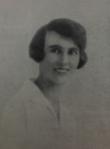Born: Established: 1899 Townsville, Townsville area, Marlborough - Mackay - Townsville area, Queensland, ; Died: Ceased: 1981
AustLit
 3348038200386048170.jpg
3348038200386048170.jpg
Source: The Australian Woman's Mirror, 10 January, 1928, p. 10
Edith Mary England
Edith Mary England
i(A2514 works by)
(a.k.a.
Edith Mary Bertie; Edith Mary Anders; E. M. England)
Born: Established: 1899 Townsville, Townsville area, Marlborough - Mackay - Townsville area, Queensland, ; Died: Ceased: 1981
Born: Established: 1899 Townsville, Townsville area, Marlborough - Mackay - Townsville area, Queensland, ; Died: Ceased: 1981
Gender:
Female
The material on this page is available to AustLit subscribers. If you are a subscriber or are from a subscribing organisation, please log in to gain full access. To explore options for subscribing to this unique teaching, research, and publishing resource for Australian culture and storytelling, please contact us or find out more.
BiographyHistory
Most Referenced Works
Notes
-
England won the Capel Boake Prize in 1948, the Fellowship of Australian Writers Centenary Prize in 1960, the Newcastle Morning Herald (Mattara Festival Prize)in 1962, the Warana Festival poem in Brisbane in 1964 and 1967, all for poetry, and the ABC play award in 1942
-
Tape of interview with England by Suzanne Lunney in 1975 is held at NLA.
Known archival holdings
Other manuscript items in the Fryer Library individually catalogued.
University of Queensland University of Queensland Library Fryer Library
(QLD)
Last amended 22 Jul 2016 07:49:30

